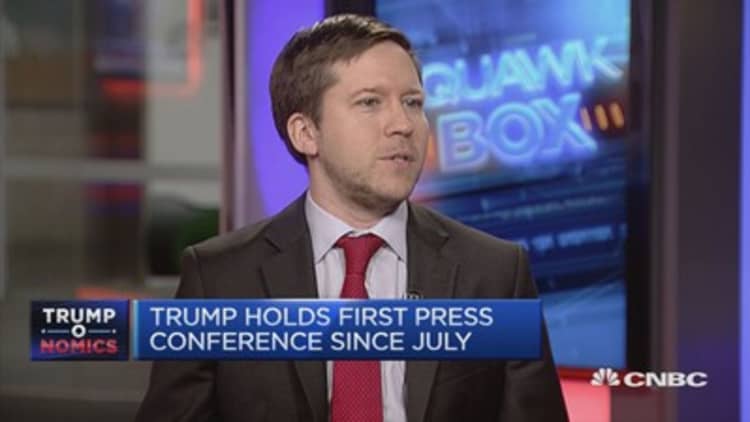
The transition plan announced by President-elect Donald Trump falls short of the standards met by every President since the Watergate scandal in the 1970s, according to the Director of the U.S. Office of Government Ethics (OGE).
Walter M. Shaub Jr. said that he wished that he did not have to address the public with his concerns but that there had been a lot of recent commentary surrounding ethics so he hoped by speaking up on Wednesday afternoon, Trump may see fit to reconsider some of his plans.
"I need to talk about ethics today because the plan the President-elect has announced doesn't meet the standards that the best of his nominees are meeting and that every President in the past four decades has met," Shaub stated.
"My hope is that, if the Office of Government Ethics can provide some constructive feedback on his plan, he may choose to make adjustments that will resolve his conflicts of interest," he continued.
Trump's proposed blind trust – within which his sons would run his business operations and he would step back from a full-time operational role – was criticized by Shaub as reflective of a structure that is "not even halfway blind."
"His own attorney said today that he can't "un-know" that he owns Trump tower. The same is true of his other holdings. The idea of limiting direct communication about the business is wholly inadequate. That's not how a blind trust works. There's not supposed to be any information at all," railed the Director.
Shaub also pointed particularly to the President-elect's comments regarding his intended interaction with the OGE.
"I was especially troubled by the statement that the incoming administration is going to demand that OGE approve a diversified portfolio of assets. No one has ever talked to us about that idea, and there's no legal mechanism to do that…We would have told them that this arrangement fails to meet the statutory requirements," he said.
In a bid to lighten the broadly negative picture, Shaub cited the ethics agreement developed for the intended nominee for Secretary of State, Rex Tillerson, as an example of a plan in which his office could take especial pride.
"Mr. Tillerson is making a clean break from Exxon. He's also forfeiting bonus payments worth millions. As a result of OGE's work, he's now free of financial conflicts of interest. His ethics agreement serves as a sterling model for what we'd like to see with other nominees," the Director enthused.
"He clearly recognizes that public service sometimes comes at a cost. The greater the authority entrusted in a government official, the greater the potential for conflicts of interest. That's why the cost is often greater the higher up you go," Shaub continued in pointed remarks.
Yet, it would have taken a leap of faith to assume that Trump ever intended to sell out of his business interests to a degree that would be considered satisfactory to authorities, Tim Cooper, Global Economist at BMI Research told CNBC's Squawk Box on Thursday morning.
"The only plausible way that he could alleviate all concerns about his conflict of interests would be to divest his business altogether and that was never likely to happen," opined Cooper.
"His family probably would have had to divest their interests in the business empire as well for there truly to be no conflict of interest whatsoever and that's a very high standard to meet and I don't think that was ever going to happen," he concluded.


